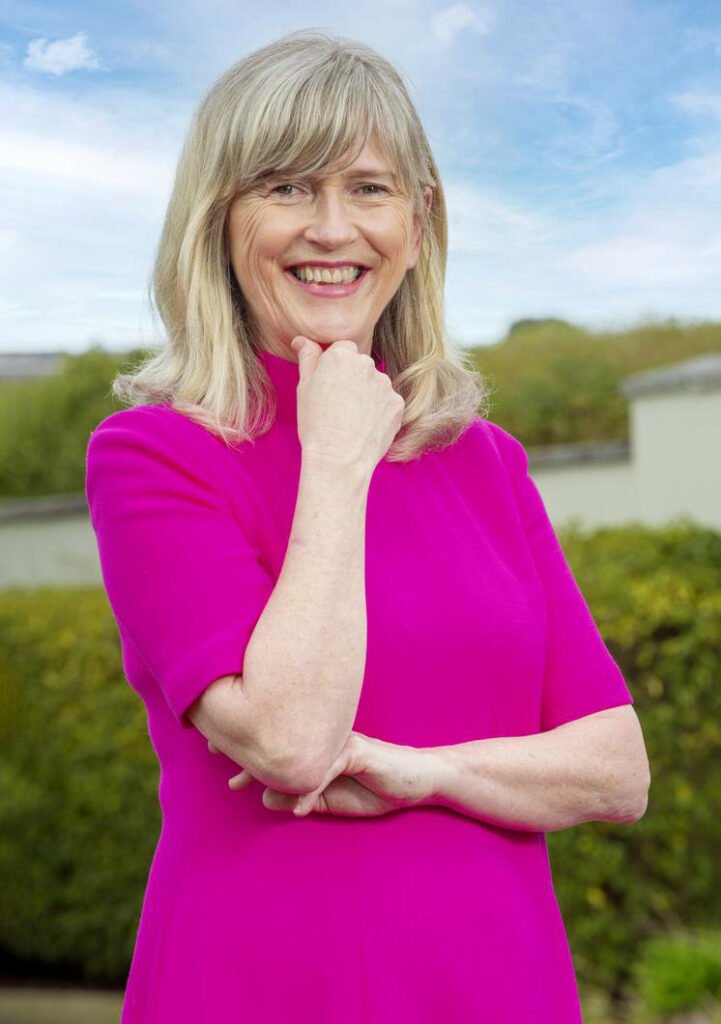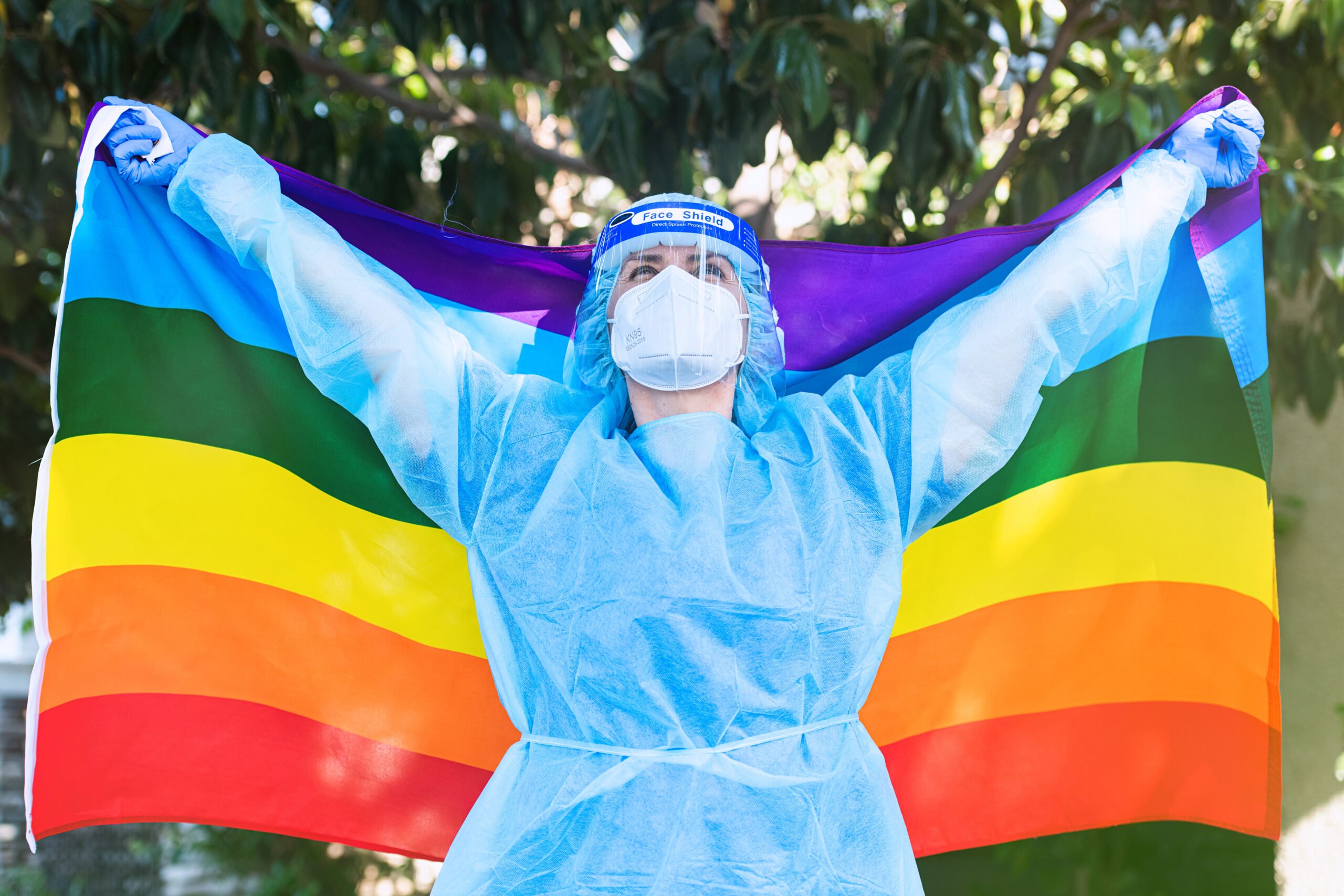With the arrival of Pride 2021, RCPI President Prof Mary Horgan reflects on the experiences of LGBTQ+ patients and physicians
For a lot of organisations, June means one thing: Incorporating rainbows into their imagery and messaging in advance of annual Pride festivals. Even in our currently subdued world, Pride is still evident: Rainbow striped logos are appearing everywhere and many virtual events are being held in place of organised parties and in-person celebrations.
Over 50 years of political protest
Synonymous with the month of June, Pride means so much more to the LGBTQ+ community than a stream of vibrant floats and taking over city and town centres for massive parties. Instead, Pride is a central philosophy that opposes ‘shame’ by definition and reinforces LGBTQ+ rights movements 365 days of the year, not just for one day or one month. 2019 marked 50 years since the momentous New York Stonewall riots that changed the course of LGBTQ+ history and paved the way for the years of activism, protests, and victories that have led to Pride as we know it today. Although it was born from protest, Pride is also a celebration of love.

Experiences in healthcare
Patient experience is at the heart of good healthcare. Patients should be treated with dignity and respect by healthcare staff they can trust. Reported experience of some gay people shows that this is sometimes simply not the case. Lesbian, gay, and bisexual people are more likely to be open to their manager, to friends, and to colleagues than their GP or healthcare professional. Gay people also report having assumptions made about them by healthcare staff that they believe can impact on the care they receive.
Improving patient experience need not be difficult and there are some simple and cost-effective measures, which can help. Healthcare organisations that put patients at ease and have well-informed staff are much more likely to deliver high quality care to diverse communities.
It is also important to remember the importance of authenticity. Putting inclusive policies in place, addressing the language of how we approach patients, and offering support to everyone within your organisation who is part of the LGBTQ+ community are all options that can ensure you are a genuine advocate and ally.
Mental health and Covid-19
On 1 June, an Oireachtas committee heard that 93 per cent of LGBTQ+ young people were struggling with anxiety, stress and depression during Covid-19, in comparison with 53 per cent of non-LGBTQ+ youth. This was one of the findings of a survey from youth charity Belong To, which also revealed a 113 per cent increase in support through their frontline service, supporting 1,540 individuals, compared to 717 in 2019.
Similarly, years-long waiting lists for transgender people seeking assessments have only grown during the pandemic, as reported to the committee by Dr Vanessa Lacey, Health and Education Manager, Transgender Equality Network Ireland. Dr Lacey is one of the contributors to the RCPI’s forthcoming LGBTQ+ Health and Wellbeing webinar.
“There are horror stories of people seeking assessments. The service is supposed to help people’s mental health, but the anecdotal evidence is that it’s contributing to mental ill health,” Dr Lacey said.
Some LGBTQ+ people have had to face a number of other challenges during lockdown, such as being forced back into the closet, living in an unsupportive or homophobic environment or isolation. As the pandemic retreats, there will be increased calls for improved access to healthcare, better school curriculums on LGBTQ+ issues, and legislation around problems, such as hate speech and conversion therapy.
It’s very likely that these universal issues facing LGBTQ+ people are just as prevalent amongst those working in the healthcare sector
The experience of LGBTQ+ healthcare workers in the workplace
Little is still known about the experiences of LGBTQ+ physicians in the workplace. That is about to change to an extent with the presentation of a new survey by the LGBTQ+ Medical Network. Over the past few weeks, they have been seeking the opinions and experiences of LGBTQ+ doctors and medical students in the Irish health service to better understand the issues affecting them.
The results of this survey, the first of its kind undertaken amongst peers, will be revealed by Dr Fionán Donohoe and Dr Maggie O’Brien as part of a special presentation at RCPI’s upcoming webinar. Whilst the survey results are still being finalised at the time of writing, it seems likely that they will show that the experience of healthcare workers and students will reflect the those of LGBTQ+ individuals working in other industries. Common experiences include:
- Coming out – and being out – matters. Feeling unable to be out contributes to lower workplace productivity, because it is stressful and debilitating.
- People who are open about being LGBTQ+ often must come out repeatedly, sometimes up to multiple times a week.
- LGBTQ+ employees report substantial barriers to advancement, with many believing that they have to outperform non-LGBTQ+ colleagues to gain recognition.
- LGBTQ+ employees face significant legal barriers when it comes to immigration, as many countries still do not recognise LGBTQ+ relationships.
It’s very likely that these universal issues facing LGBTQ+ people are just as prevalent amongst those working in the healthcare sector. This month (aka Pride month), and every month, we would encourage everyone working in healthcare and beyond to do one small thing to show support for LGBTQ+ issues, whether it’s wearing a lanyard or rainbow badge, changing an email signature to show you’re out as an ally, or even just promising to have a conversation with a family member about LGBTQ+ issues. And don’t forget to check out, and get involved, in the numerous events happening online this year.
Courage can be contagious. The message of Pride is still relevant today as it was 50 years ago, because it’s hugely important we never forget how easy it is to take away rights that we have earned. For physicians and patients alike, the ability to live and work in an environment where we can spend energy being ourselves – not hiding – is beneficial to us all.
Happy Pride, everyone.
The RCPI’s special LGBTQ+ Health and Wellbeing webinar takes place on 24 June at 5.30pm as part of a celebration of Pride 2021. The event will examine some of the issues raised in this article; This webinar is the first of its kind at the RCPI and is an exciting opportunity to hear from speakers in areas such as sexual health, trans health, the law affecting LGBTQ+ people and experiences of LGBTQ+ doctors working in the Irish health service – all of which are issues that affect LGBTQ+ patients, parents and physicians. The webinar is open to RCPI trainees, members and Fellows, and all medical professionals. At the event, the wonderfully diverse line-up of speakers and topics will include:
- Experience of LGBTQ+ Doctors – Dr Fionán Donohoe and Dr Maggie O’Brien, Trainees in Obstetrics and Gynaecology.
- Trans Health in Ireland – Dr Vanessa Lacey, Health and Education Manager, Transgender Equality Network Ireland (TENI).
- Sexual Health and the LGBTQ+ Community – Dr Michael Brady, National Adviser for LGBTQ+ Health, NHS England and Consultant in Sexual Health and HIV, Kings College Hospital, London.
- LGBTQ+ Families and the Law – Dr Lydia Bracken, Assistant Dean, Equality, Diversity and Inclusion, Faculty of Arts, Humanities and Social Sciences, University of Limerick.
Visit RCPI.ie to find out more about the event and to book your place.













Leave a Reply
You must be logged in to post a comment.